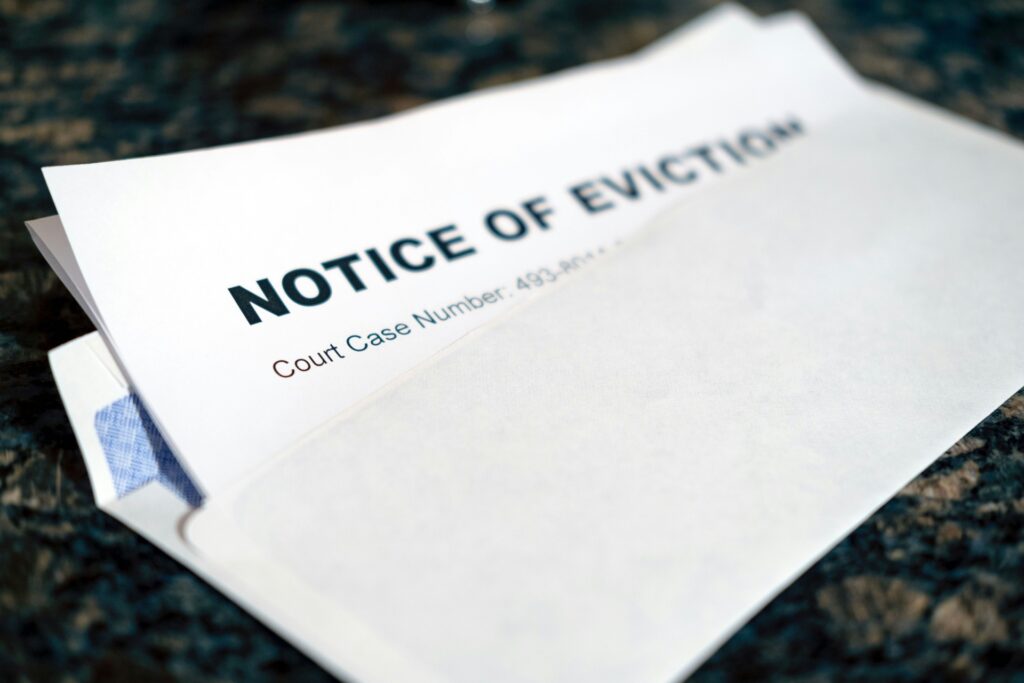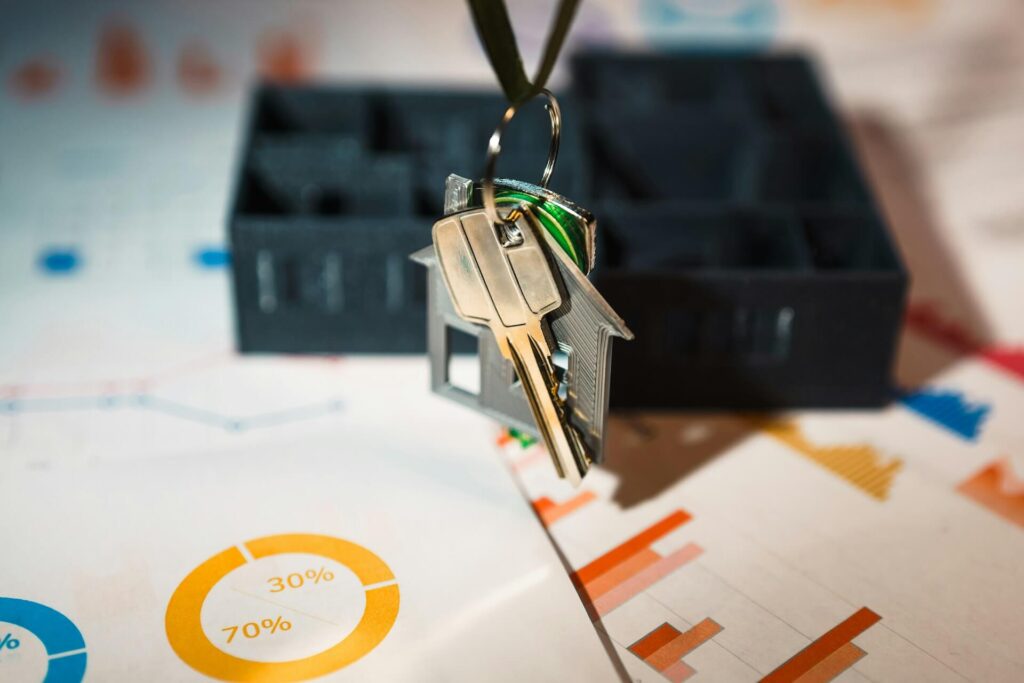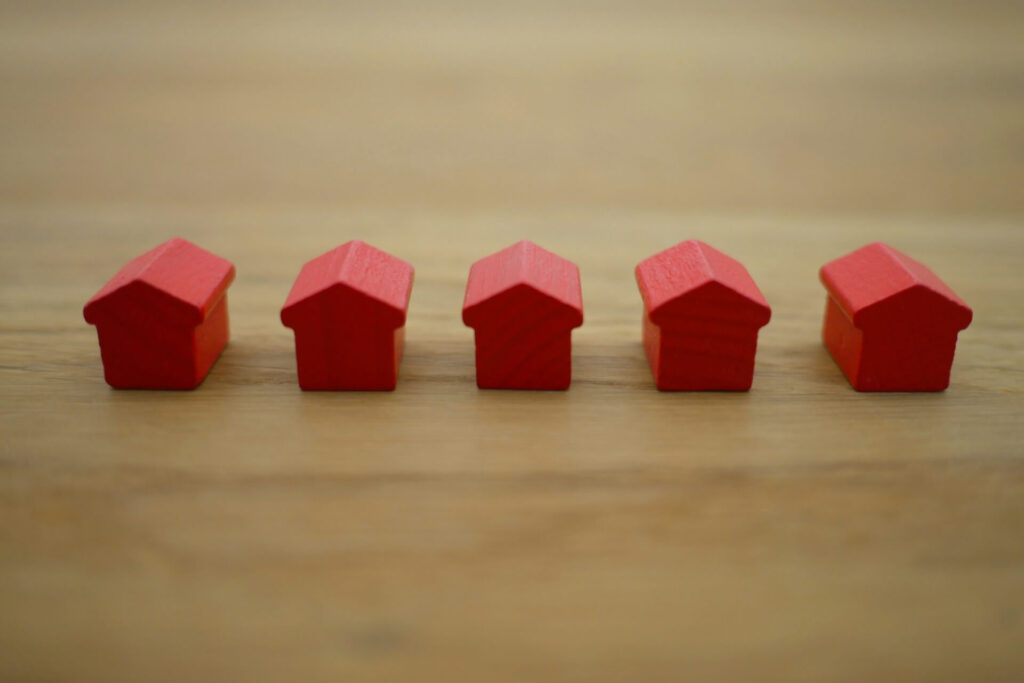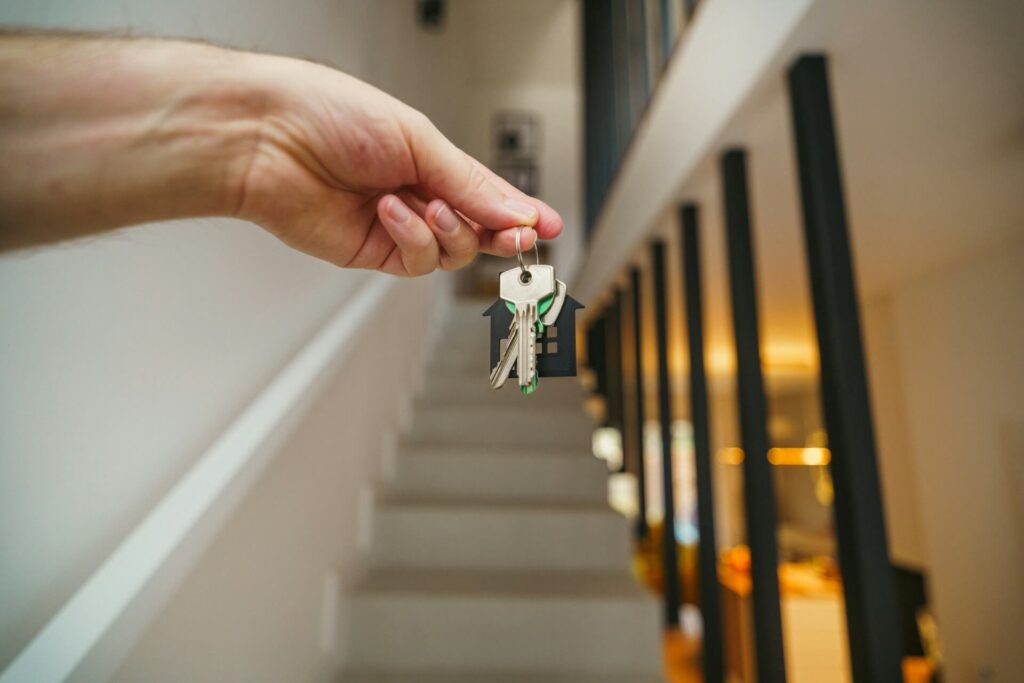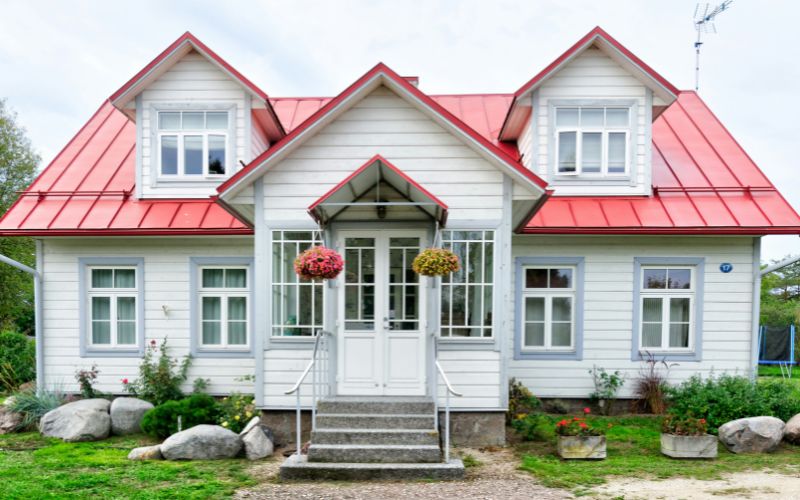We are reader-supported. When you buy through links on our site, we may earn an affiliate commission.
If you’re considering moving out independently, you might wonder whether you should rent or buy a house. Assuming you have the finances to do either, how do you decide which is best?
Making the right choice involves an in-depth analysis of the pros and cons. Here’s what you need to know when asking yourself if you should rent or buy a house.
The Advantages of Renting
Both renting and buying offer pros and cons. When it comes down to one versus the other, the winner of the bout depends on your circumstances, needs, and wants. Let’s examine the considerations, starting with the benefits of renting.
Fewer Qualification Requirements
If you want to buy a home, you need a substantial amount of green in the bank. Federal Housing Administration (FHA) loans require less of a minimum down payment than conventional, but they nevertheless require 3.5%. If you buy a $200,000 home, that’s still a hefty chunk.
Conventional loans allow you to eliminate costly home mortgage insurance premiums. However, to do so, you’ll need at least 20% down.
Any form of a mortgage requires a credit score of at least 580 or higher. Renting typically requires the equivalent, but you can find private landlords who don’t run a background check. You also have to meet debt-to-income ratio requirements when buying. They count when renting, too, but not nearly as much — many people in America spend more than the recommended 30% on housing each month.
The bottom line — if you have a few grand in your pocket, a stable work history and a high credit score, you can go either way. However, failure to meet any of these three qualifications may mean resigning yourself to Tenant City until things improve. While it’s a dubious advantage, the reduced requirements make the application process a rental plus.
Little Maintenance
One significant advantage of renting is that when your water heater goes on the fritz, you can call the super instead of the plumber. The price of that replacement appliance won’t come out of your pocketbook.
However, you do need to wait for the landlord to approve the necessary repairs. While in theory that scenario doesn’t sound half-bad, it becomes problematic when your air conditioning unit blows — in Phoenix during August.
As a tenant, you have the right to make minor repairs and deduct them from your rent. While rules vary by jurisdiction, they typically can’t exceed half your monthly payment amount. However, if you want to maintain a harmonious relationship with your landlord or property management company, please advise them of your plans.
More Freedom to Move
When you own a home, you often have to sell it before you can move — unless you can afford two sets of bills. Therefore, if you get a hot job offer across the country, you must think about the financial ramifications before signing on the dotted line. Even if your new employer pays your relocation fees, can you afford to sit on the market for a year or more?
If you sign a written lease, you may have a cancellation clause that outlines your responsibilities if you breach the contract early. However, if not, you may need to pay a penalty, fulfill the rest of the term, or help your landlord find a suitable replacement tenant.
However, many tenants choose to go month-to-month after their lease term ends. If you fall into this category, you only need to give 30 days’ notice from the date your rent payment is due to leave. Hello, sweet freedom.
Potentially Fewer Monthly Bills
Depending on your landlord, you may pay all the expenses related to homeownership, minus the mortgage. However, many choose to avoid future legal headaches by covering utilities and doing this through monthly rent payments. In those cases, you may only pay one bill, such as electricity. In rare instances, your property manager covers everything except rent.
Abundant Access to Community Amenities
Are you looking for gym-quality equipment without a fitness center membership? Some apartment complexes have amenities on-site ranging from health clubs, full libraries, and even pet-sitting and beauty services. While you might find some temporarily closed due to COVID-19 restrictions, when the pandemic ends, you can enjoy luxurious perks you could never afford with a private residence.
Disadvantages of Renting
Although renting offers multiple advantages, it does have downsides. Be wary of these potential pitfalls before you decide whether you should rent or buy a house.
Lack of Permanency
When you rent, you don’t claim title to the property. You only have the exclusive right to use it for the specified term period. When that time ends, you need to renew or pack your bags.
Your lease generally runs with the property. Therefore, if you sign a 2-year agreement, and your landlord sells or forecloses, you can remain on the premises. In the case of a foreclosure, you have 90 days from when the bank takes the property to pack and leave.
Be careful if your lease includes a clause that transforms into a month-to-month agreement after the term ends. If you intend to remain in the home, you need to negotiate a new contract. Otherwise, your landlord need only give you 30 days to vacate the property if they decide to sell. It doesn’t matter if you can’t find a replacement home in that time within your price range — you may have to sofa-surf.
No Property Modifications
When you rent, you can’t paint your kitchen cabinetry on a whim or build an addition on your deck. You need to get your landlord’s permission before making any alterations to the property.
The one exception involves accessibility accommodations for individuals covered under the Americans with Disabilities Act (ADA). Per the law, you may make reasonable accommodations by adding things like grab bars and replacing carpet with hardwood. However, your property manager need not cover costs if they represent an undue financial burden.
More Rules and Regulations
If you own a home in the country, no one cares if you blast death metal at 3 a.m. If you wake up the folks in surrounding apartments, anticipate having hostile neighbors at best and possibly getting evicted at worst.
Everyday conveniences can become problematic when you rent. Many complexes, for instance, only provide one or two dedicated parking spaces to tenants. What happens when your family visits from out of town? Other residents grow understandably testy if you take their spots.
Reduced Privacy
Did you and your significant other have a heated argument? You can almost guarantee your upstairs neighbor knows some of the details unless you carried it out via text. If you don’t like saying hi to people as you stagger down the hall in your PJs to run for coffee, the lack of privacy in an apartment complex might irritate you.
Zero Equity
Do you know how much you gain from your monthly rental payments? Other than temporary lodging, you may as well reside in a hotel. They might be pricier, but they have better room service. Either way, you don’t amass a dime in equity.
Rent Increases
Finally, one of the biggest downfalls of renting that can lead to homelessness involves rent increases. Unfortunately, the average wage has not kept up with inflation for decades. If prices continue to climb without corresponding padding of your paycheck, you can find yourself priced out of places to live. Some people already find themselves employed but living in their cars — it isn’t an overblown fear.
Advantages of Buying
Owning a home provides much more than pride, although it is a considerable perk. Here are some other reasons you might want to save to purchase a home as soon as possible.
You Build Equity
Buying allows you to pay yourself every month. Each time you make a mortgage payment, you increase your ownership interest in the property. Would you rather invest $1,500 in your future or your landlord’s monthly?
You Eventually Reach a Zero Balance
You’d like to retire with the gold watch someday, right? If you don’t want to have to hawk your newly acquired Rolex at a pawnshop to keep a roof over your head, homeownership is your best bet. Eventually, you reach a zero balance and eliminate what is for many their most massive monthly bill.
You Leave an Inheritance
Do you have children? They can inherit your property when you die. If you own the home free and clear by the time you bid farewell to this world, they will always have a place to stay as long as they pay the property taxes.
What if you don’t have children? Think of it this way — would you rather leave the amount you amassed from working to the Foundation for Homeless Cats or your landlord? Managing your wealth means you decide what to do with the money even after you die.
You Can Borrow Against Your Principal
Did you lose your job in the pandemic? If you had amassed considerable equity in your home, a line of credit could keep you flush and fed until you find replacement employment. If you rent, guess what? You need to pay up regardless of your circumstances once eviction moratoriums lift or risk homelessness.
You Can Remodel However You Like
Do you want to extend your front porch into a wraparound model? Perhaps you always dreamed of living in a little pink house with a white picket fence. Get thee to the home improvement center and start picking out paint shades. When you own your home, you can decorate and improve your palace however you like — as long as you don’t violate any homeowners association (HOA) rules.
You Enjoy Pride of Ownership
It doesn’t matter if a tree root grows through your mainline, causing your toilets to erupt like something out of “The Amityville Horror.” If you rent, and your landlord says, “A snake will fix it,” guess what? You get stuck with subpar plumbing — and multiple messes to clean.
When you own your home, you have the final authority over any repairs. You can make sure the folks you hire do the job correctly the first time.
Disadvantages of Buying
Homeownership sounds pretty peachy. However, you must consider potentially costly pitfalls when deciding if you should rent or buy a house.
You’ll Experience an Intense Qualification Process
Remember that to qualify to buy, you need three things:
- A solid credit score.
- A hefty down payment.
- Steady employment.
Regarding your work history, if you are self-employed, you must show two years of tax returns to verify your income. Some lenders let you skate by with one year, but don’t rely on that, especially if you recently changed fields.
You Are Responsible for Maintenance
Remember that blown water heater? Guess who pays the bill when you own a home? If you look in the mirror, you’ll see your answer. Fortunately, you can invest in a warranty — it’s a must if you don’t know what you’ll do when appliances go on the fritz.
Your Property Can Decrease in Value
In general, your property will increase in value over the long term. However, many folks get into trouble when they try to fix-and-flip or if they have to move unexpectedly. If the market takes a downturn, you could lose money when you go to sell.
You do have options, such as a short sale, if you find yourself underwater. However, you will still suffer a financial setback.
You Enjoy Less Freedom to Move
Homeownership’s most substantial con in the “should I rent or buy a house” debate lies in the immovability of your arrangement. If you live in New York but get a job offer in L.A., you can’t start packing with a 30-day notice.
Know the Above Before Deciding to Rent or Buy a House
When wondering if you should rent or buy a house, consider all of the above. Even if financial matters limit you to becoming a tenant, work on improving your circumstances so that you have a choice.

